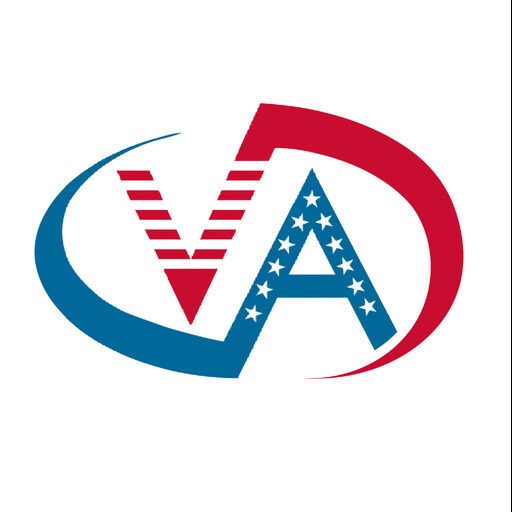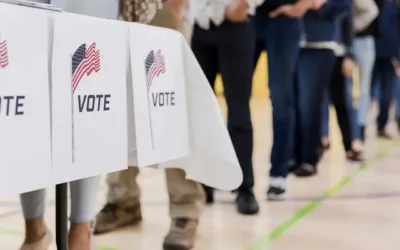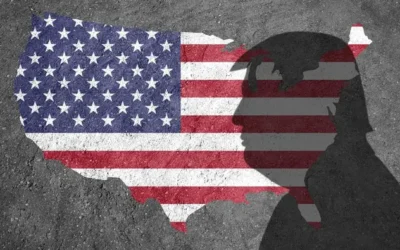The 2024 housing market is poised to face several transformative events, significantly impacting Veterans looking to purchase homes.
With fluctuating mortgage rates, increasing home prices, and changing policies surrounding VA loans, Veterans must stay informed to make smart decisions.
Whether they’re first-time homebuyers or seasoned homeowners, understanding current market conditions is key to leveraging the benefits that come with VA loans.
A Look at the 2024 Housing Market
In 2024, the housing market continues to fluctuate due to inflation, interest rate hikes, and ongoing affordability challenges. According to the National Association of Realtors (NAR), the average home price in the United States has risen to $416,100, and in some regions, prices have skyrocketed further. However, despite the higher prices, VA loans offer Veterans the chance to navigate the market with unique benefits, such as zero down payment options and low interest rates.
Mortgage Rates and Their Impact on Veterans
Mortgage rates in 2024 remain volatile, influenced by actions from the Federal Reserve and economic shifts. Rates for a 30-year fixed mortgage are hovering between 6.5% and 7.25%, with VA loan rates slightly lower.
According to Sam Bradford, a senior mortgage advisor at HomeVantage Lending Group, “Veterans are in a better position with VA loans, as they typically enjoy interest rates that are at least 0.5% lower than conventional mortgages.” Lower rates can save Veterans thousands of dollars over the life of a loan, making VA loans an attractive choice in the current market.
For Veterans looking to refinance, the Interest Rate Reduction Refinance Loan (IRRRL) remains a key tool for lowering monthly payments without the need for a new appraisal or extensive documentation. This refinancing option is particularly valuable for those who secured a VA loan at higher rates and wish to capitalize on any future rate drops.
Home Prices Across the Country
While the national average home price continues to rise, there is significant variation across regions. Cities like San Francisco and New York have median home prices exceeding $1 million, while more affordable areas, such as the Midwest, offer homes at around $275,000. For Veterans, this means location matters more than ever.
Mary Thompson, a housing specialist at Veteran Mortgage Solutions, states, “Veterans should consider relocating to regions with more affordable housing markets to maximize the benefits of their VA loan.”
To give a clearer view, here’s a table showing average home prices across different regions in 2024:
| Region | Average Home Price |
|---|---|
| Northeast | $526,400 |
| Midwest | $297,000 |
| South | $370,800 |
| West | $623,700 |
Inflation and the Cost of Living for Veterans
One of the biggest challenges facing Veterans is the rising cost of living, spurred by inflation. With prices for essentials like food, fuel, and healthcare rising, Veterans may feel increased pressure when buying a home. However, Veterans can take advantage of VA loan programs to offset these costs.
VA loans require no down payment, meaning Veterans don’t have to delay homeownership to save for large upfront costs. Additionally, VA loans have more flexible credit requirements, allowing Veterans with less-than-perfect credit to qualify.
Housing Policy Changes in 2024
Several policy changes are also shaping the housing market for Veterans. The Blue Water Navy Vietnam Veterans Act, passed in recent years, has removed loan limits for eligible Veterans with full entitlement. This change allows Veterans to purchase higher-priced homes without a down payment. Moreover, efforts to modernize the VA home loan process, including increased digital services, are making it easier and faster for Veterans to secure financing.
Veterans in rural areas can also benefit from the combination of VA loans with USDA loans, providing them with more financing options for homes in less populated areas. The availability of VA loans for new construction homes also offers flexibility for Veterans who prefer a custom-built home.
The upcoming 2024 election could also have a significant impact on housing policy. With both Donald Trump and Kamala Harris expected to take strong stances on the housing crisis, Veterans should pay close attention to any proposed policy changes that could affect VA loans.
Trump has historically supported Veterans through initiatives like expanding healthcare access, while Harris has shown support for affordable housing programs. How their policies will impact Veterans in the housing market remains to be seen.
Navigating the Challenges of Affordability
Affordability remains one of the biggest hurdles in 2024. With home prices climbing, Veterans may struggle to find homes within their budget.
However, VA loans provide Veterans with financial leverage, especially as they can avoid the costly Private Mortgage Insurance (PMI) required by conventional loans when the down payment is less than 20%.
Here’s a comparison of costs between conventional loans and VA loans to highlight the savings for Veterans:
| Factor | VA Loan | Conventional Loan |
|---|---|---|
| Down Payment | 0% | 3-20% |
| Interest Rates | Typically 0.5% lower | Based on credit score |
| Private Mortgage Insurance (PMI) | None | Required if < 20% down payment |
| Flexibility in Credit | More lenient | Stricter requirements |
VA Loan Benefits for 2024
Veterans have always benefited from unique advantages through the VA loan program, and in 2024, these benefits remain critical, especially in an unpredictable market. Key benefits include:
- No down payment: Veterans can purchase a home without saving for a large down payment.
- Lower interest rates: VA loans typically offer more favorable interest rates compared to conventional loans.
- No PMI: Veterans can save hundreds of dollars each month by avoiding PMI.
- Flexible credit requirements: Even Veterans with lower credit scores can qualify for a VA loan.
- Limits on closing costs: The VA places restrictions on how much Veterans can be charged for closing costs, further reducing upfront expenses.
- Access to refinancing: Veterans can refinance their VA loans through the IRRRL program, lowering interest rates without requiring a new appraisal.
- No loan limits: Eligible Veterans with full entitlement can buy higher-priced homes without worrying about loan limits, thanks to the Blue Water Navy Vietnam Veterans Act.
Conclusion: Why VA Loans Remain a Strong Option
Even in an unpredictable market, VA loans remain one of the best home financing options for Veterans. The flexibility in credit requirements, the ability to buy a home with no down payment, and the exclusion of PMI make VA loans stand out compared to conventional loans. Additionally, as the market continues to shift, Veterans should take advantage of VA refinancing options like the IRRRL to lower their monthly payments when rates drop.
According to John Matthews, a senior loan officer at Veterans United, “Now more than ever, VA loans provide Veterans with financial protection and benefits that help them secure affordable housing, despite market fluctuations.”
Staying informed about market changes, understanding the advantages of VA loans, and knowing how to leverage VA benefits will help Veterans make sound financial decisions when buying a home.
Frequently Asked Questions (FAQs)
1. What are the current mortgage rates for VA loans in 2024?
VA loan rates typically range from 6% to 6.5%, depending on the lender and the borrower’s credit score.
2. Can Veterans refinance their VA loan to a lower rate?
Yes, Veterans can refinance through the IRRRL program to lower their interest rate and reduce monthly payments.
3. How does inflation affect the housing market for Veterans?
Inflation raises the cost of goods and services, including housing, but VA loans can mitigate these costs with their flexible terms.
4. Are VA loans available for new construction homes?
Yes, Veterans can use VA loans to finance the purchase or construction of a new home.
5. What is the benefit of no PMI with VA loans?
VA loans don’t require Private Mortgage Insurance, saving Veterans significant monthly costs compared to conventional loans.
6. Can Veterans still qualify for a VA loan with bad credit?
Yes, VA loans have more lenient credit requirements, and Veterans with lower scores can still qualify.
7. Are there any loan limits for VA loans in 2024?
No, Veterans with full entitlement do not have a loan limit as of the Blue Water Navy Vietnam Veterans Act.
8. Can VA loans be combined with other loan programs?
Yes, Veterans can combine VA loans with other programs like USDA loans for more financing options in rural areas.

The VA Loan Network Editorial Team is comprised of dedicated mortgage specialists and financial writers committed to providing veterans and service members with accurate, up-to-date information on VA loan benefits, eligibility, and the home-buying process.







